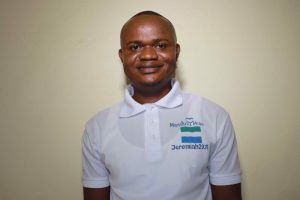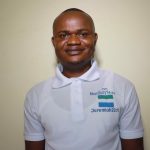The 263 people of Menika currently use a protected dug-well with a hand pump as their primary water source. But their well is struggling to keep up with the high demand, especially during the dry season (March-May every year) when the water level is too low.
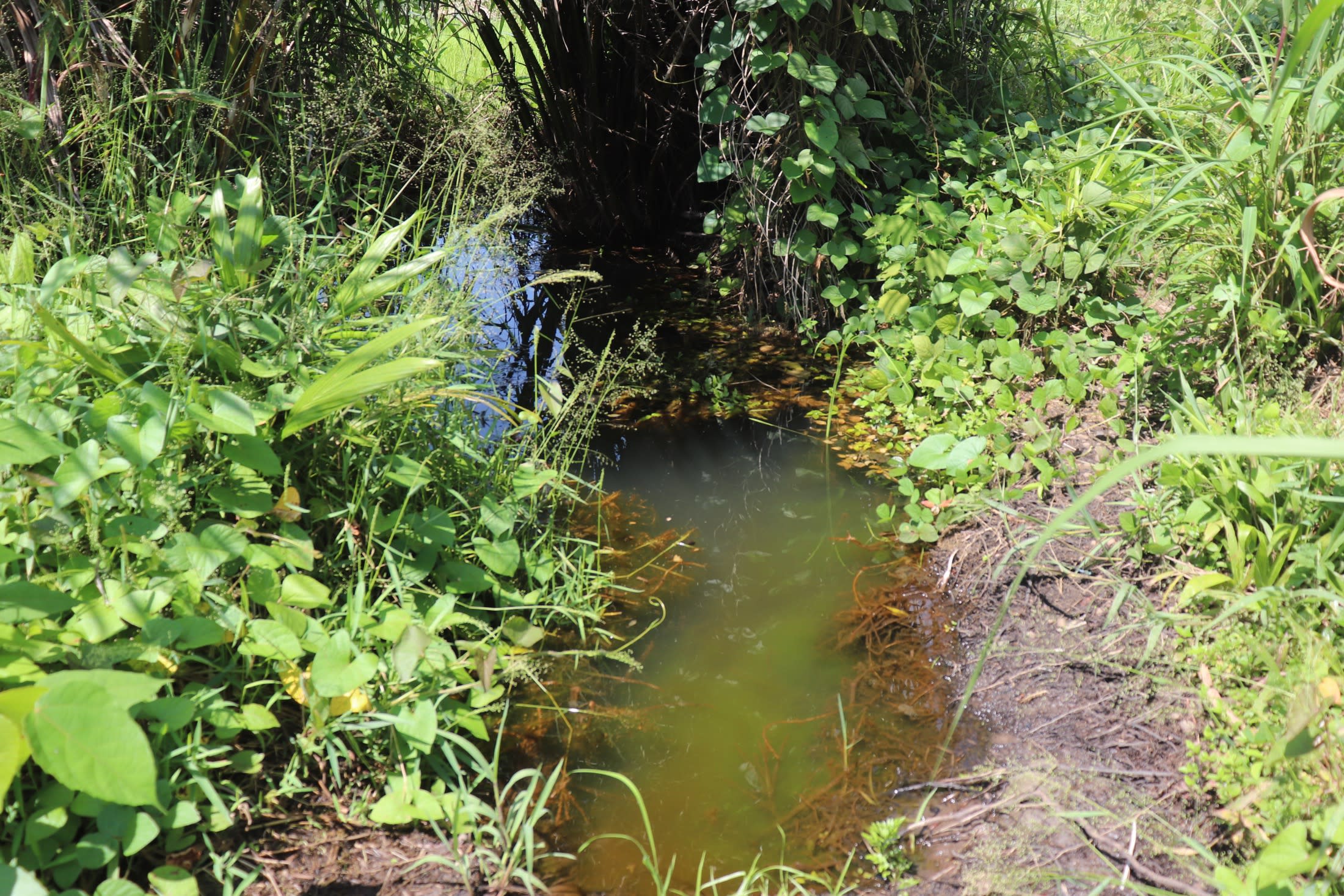
This water scarcity means community members end up collecting surface water shown in the photo above because they can't afford to go without water or wait in very long lines that lead to quarrels with their neighbors.
The well faces still more issues. It is not adequately treated or monitored for safety, there are no proper hygiene protocols for those who use the well, most of the containers people use to fetch water at the well are not clean, and it is easily accessed by domestic animals, so it is open to contamination.
Female petty trader Kadiatu Suma, 25, shown in the photo below carrying water shared her challenges surrounding water. "It is hard to fetch drinking water in this community when the main water source is not functional. The demand for water becomes more challenging during the dry season. Also, when there is high demand at the source, the water becomes filthy and causes delays at the well anytime I am trying to fetch water."
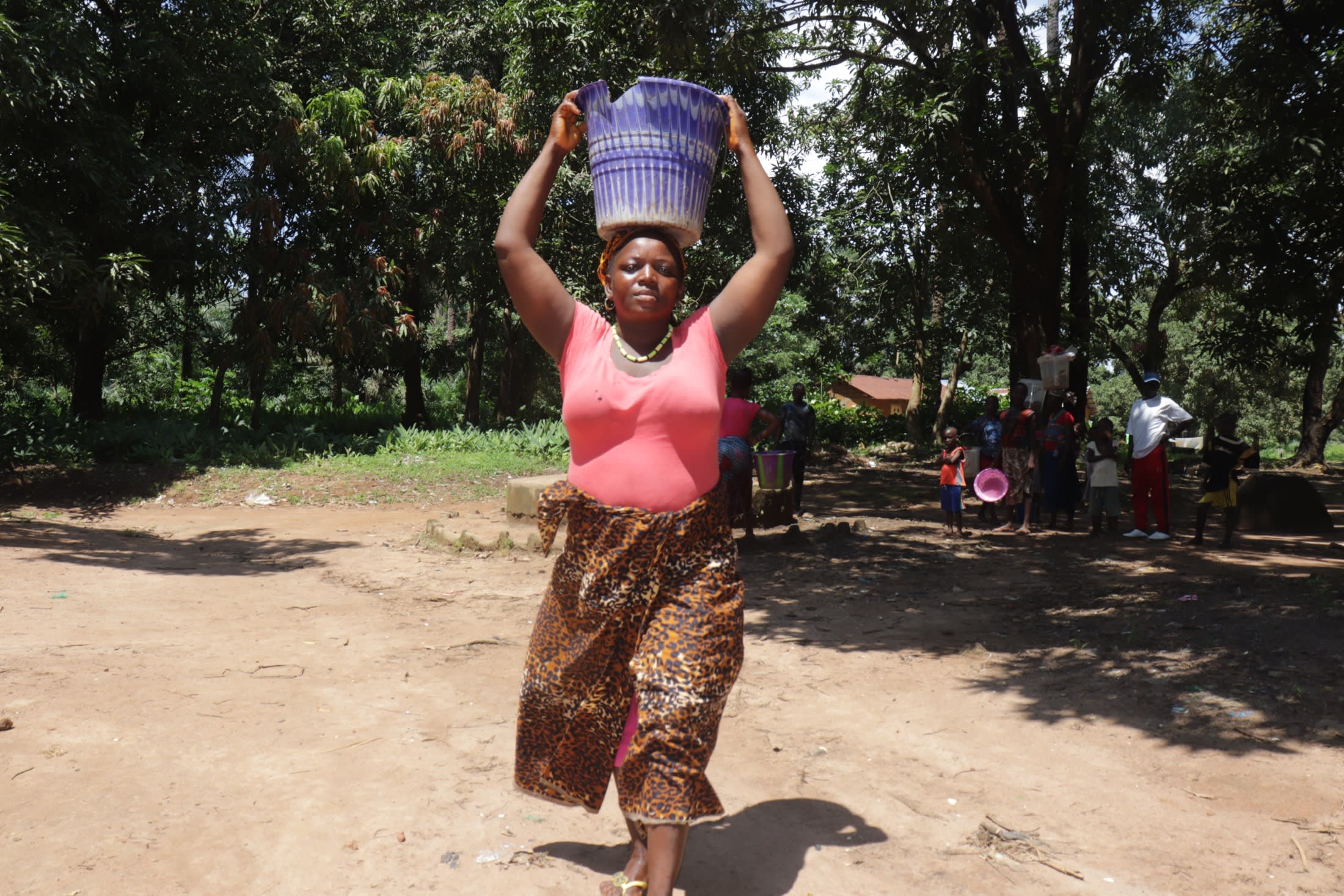
Like most people in the community, when the well is dry, or she can't wait in long lines, Kadiatu resorts to collecting water from the local swamp. "Though the distance to the swamp well is far and dangerous to reach, it is the only source where I could fetch water at any time. I cannot send my children to the swamp alone to fetch water because the area is not safe, so I must be part of the team to fetch water. Leaving other tasks at the house to fetch water with a delay at the well sometimes causes some other activities [to be] undone or not properly done because of the rush."
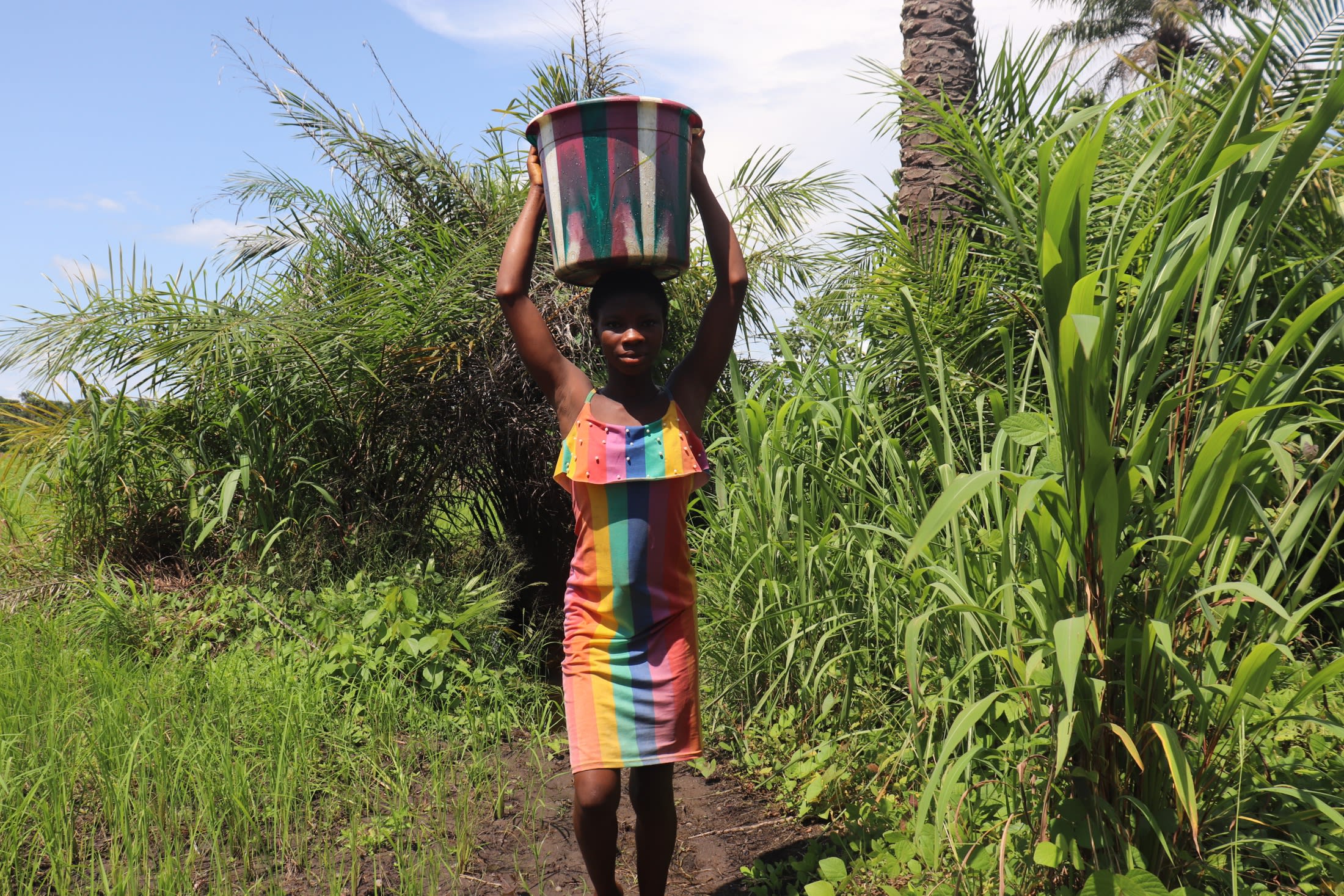
Fatmata S., 14, carrying water in the photo above shared her own daily challenges with collecting water from the swamp. "I would always prefer fetching water at the main water source than the swamp. It is hard to fetch water at the swamp because of the distance, and it is a bushy area where snakes could be easily seen."
Fatmata wastes a lot of valuable time that she could use for other productive things like studying. "I cannot go to the swamp well alone to fetch water," she said. "I have to wait until I see people going the same way, then I join them to fetch water."
The people of Menika are suffering the physical consequences of drinking water from contaminated sources. The swamp water (shown above) is murky and littered with leaves, contaminants from people bathing and doing laundry nearby, and animal feces. Stomachache and diarrhea are common ailments, often affecting young children the most.
Everyone needs a clean, safe, accessible water point that will allow them to be healthy and continue with daily tasks to improve their lives.
Here's what we're going to do about it:
Well Rehabilitation
The well marked for this overhaul is dry for a few months every year and needs major work to supply adequate, clean water to the community year round. The pump will be removed, and a hand auger will be lowered inside and powered by a drill team. This hand auger will allow the team to drill several meters deeper to hit a sufficient water column that will ensure the well supplies water throughout all seasons.
As the team drills, casing will be installed, transforming the bottom of this hand-dug well into a borehole. PVC piping will connect this lower system directly to the pump, a construction that we know will also improve the quality of water.
Once this plan is implemented, everyone within the community will have access to safe drinking water in both quality and quantity, even through the dry months.
Hygiene and Sanitation Training
There will be hygiene and sanitation training sessions offered for three days in a row.
After our visit, the hygiene and sanitation trainer decided it would be best to teach community members how to build a tippy tap (a hand-washing station built with a jerrycan, string, and sticks). They will use these tippy taps for handwashing demonstrations, and will also teach about other tools like dish racks and the importance of properly penning in animals.
These trainings will also strengthen the water user committee that manages and maintains this well. They enforce proper behavior and report to us whenever they need our help solving a serious problem, like a pump breakdown.

 Borehole Well and Hand Pump
Borehole Well and Hand Pump









